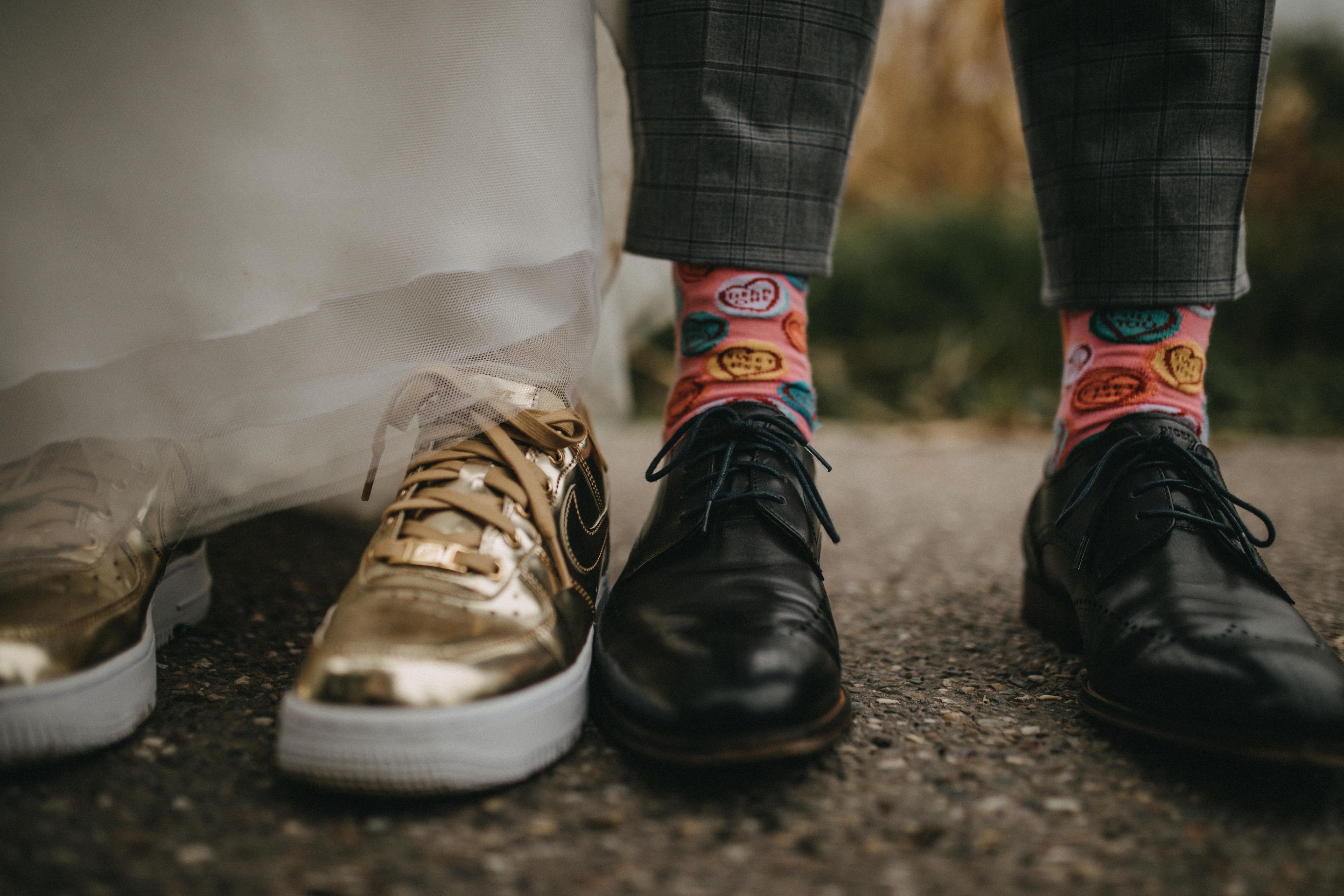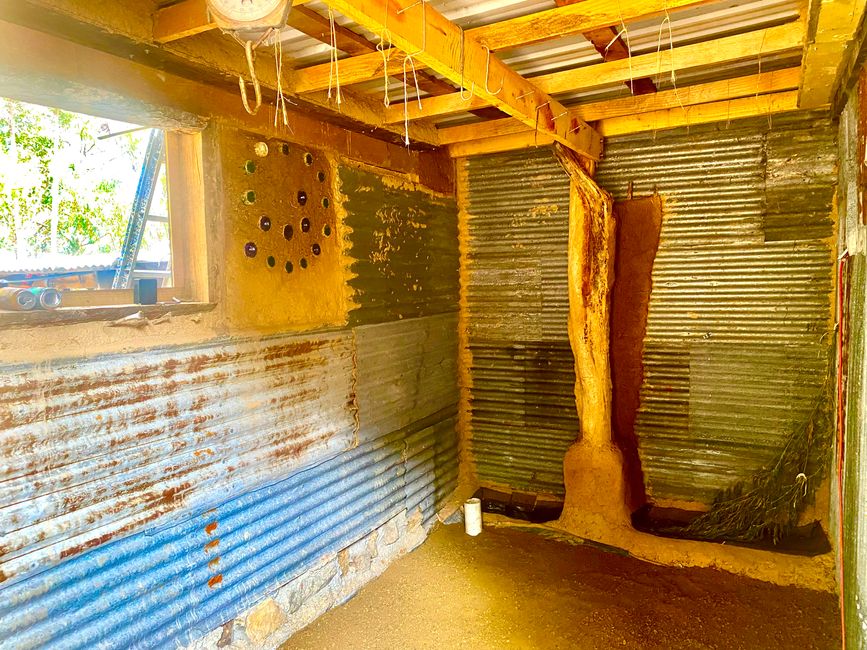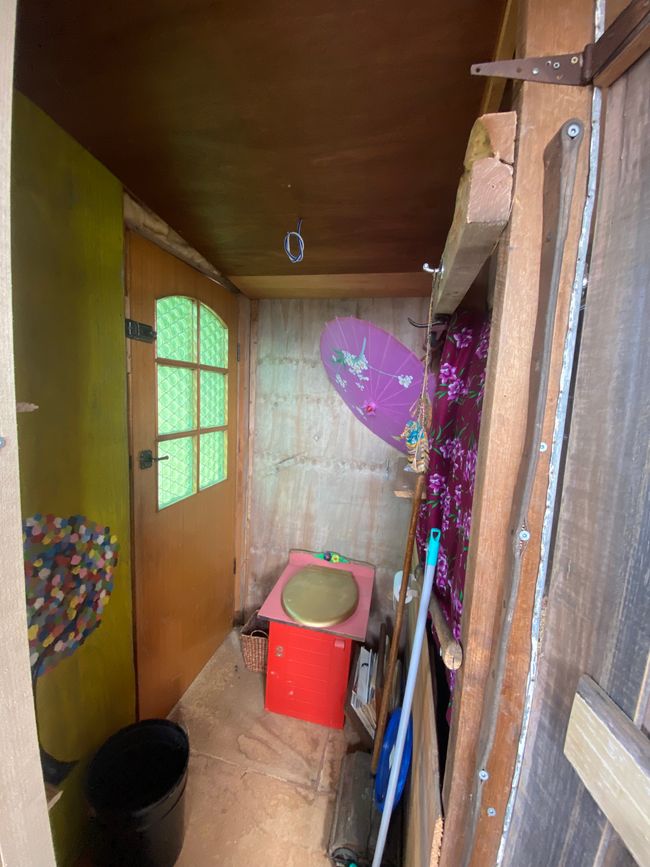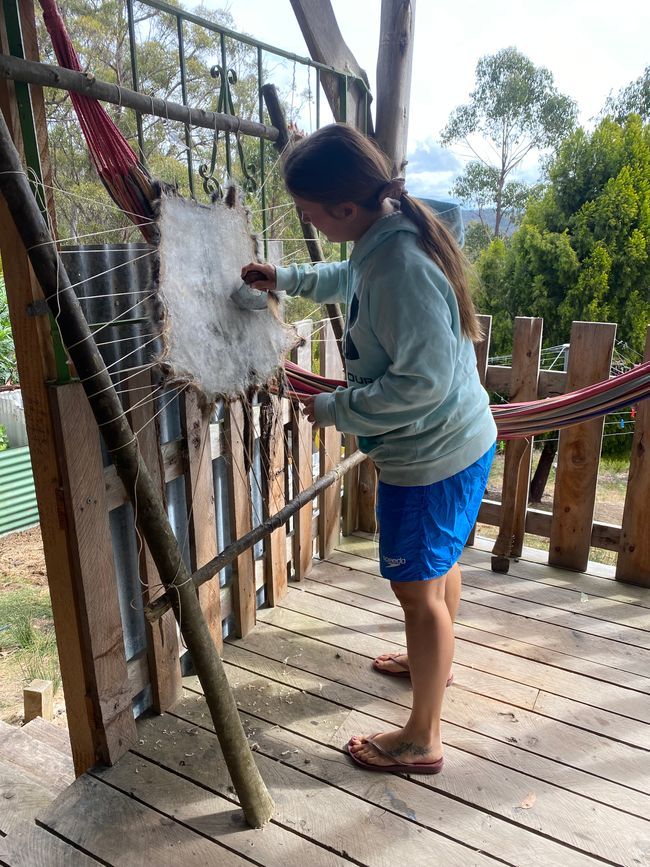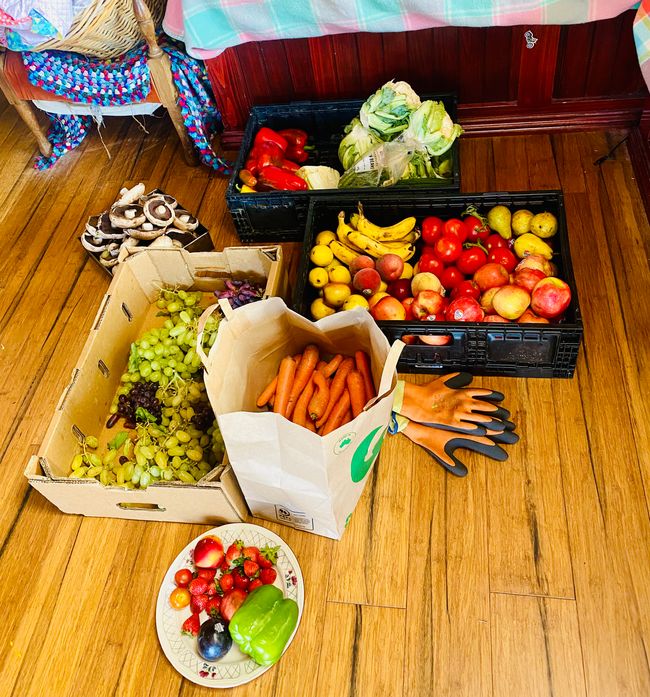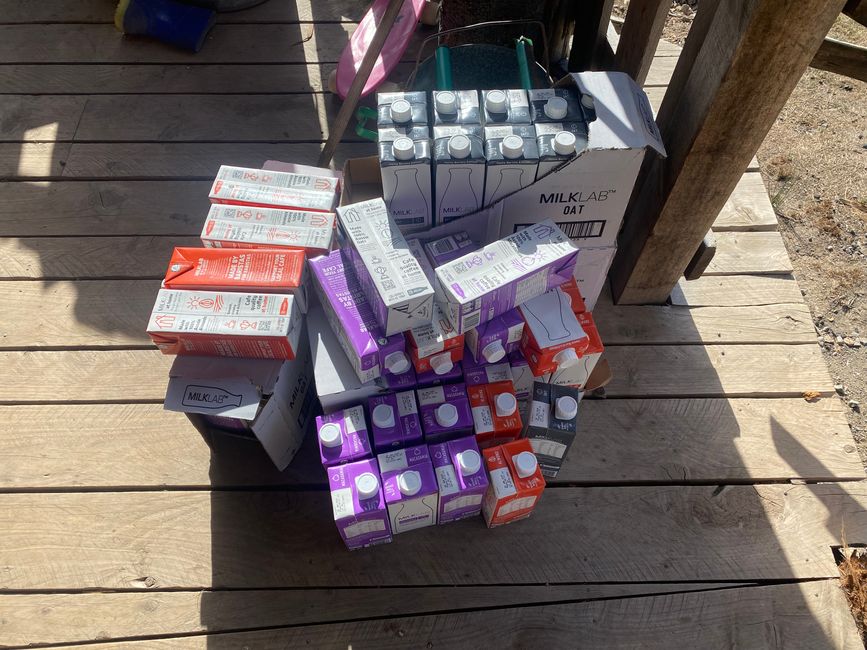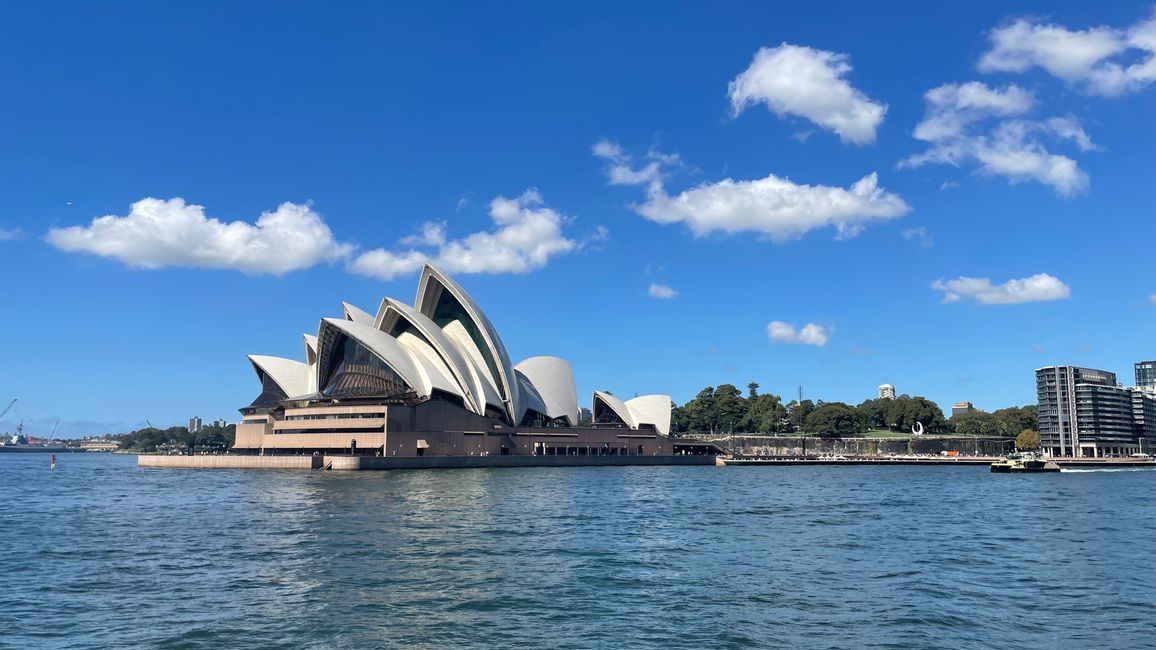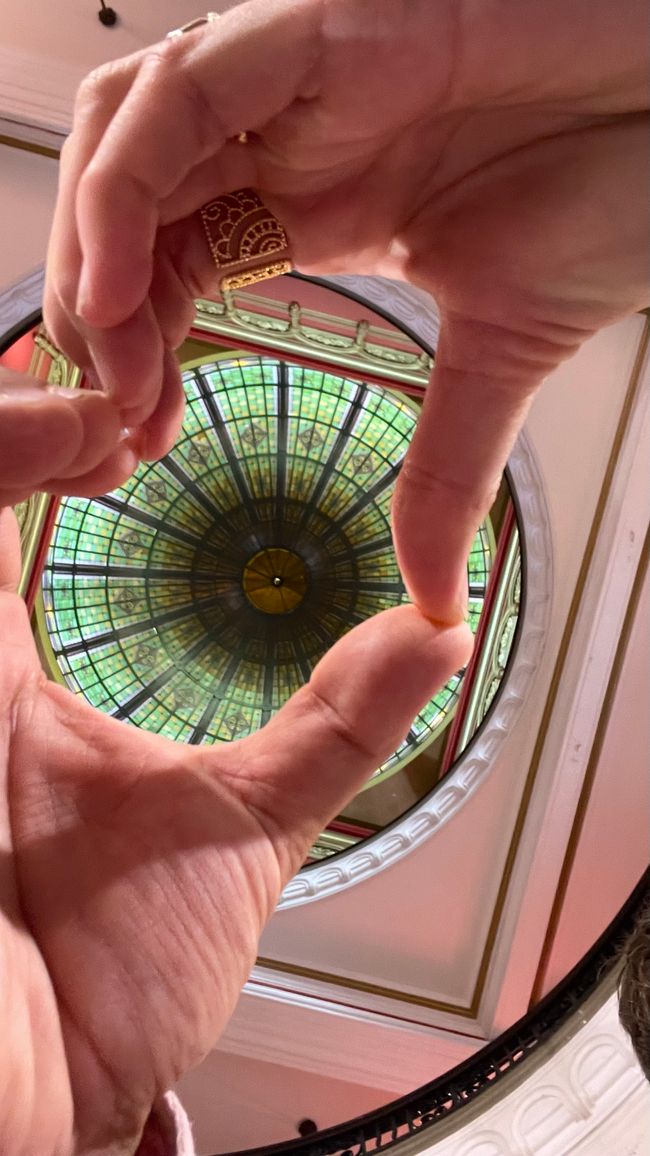
einmal_drumrum
vakantio.de/einmal_drumrum
Tassi Part Two
Ku kandziyisiwile: 23.04.2024
Tsarisa eka Xiphephana xa Mahungu
05.03- 16.04.2024
We browsed through countless classified ads on various platforms. And found a very humorously written ad from a small family who we contacted and then nothing happened for a few days. However, they wrote and apologized that they only had telephone and internet reception in one spot on their huge property. So it was understandable that they didn't write back immediately. We visited them a day early, before they picked us up from the car rental company, because they live in the middle of nowhere and we didn't want to end up abandoned in the middle of nowhere with no reception and no car. What if we didn't like them or everything wasn't as expected? We had only exchanged a few sentences by email beforehand. Yes, the directions were tough, you should come with four-wheel drive if possible, haha, we had an SUV but not a 4x4. It was a bumpy forest drive with some deep potholes to their house and you might have heard a few screams of fear from the passenger seat on the two-kilometer climb up the hill. B. and L., our age, with their two kids and dog Sky, gave us a warm welcome straight away. First we went on a tour of the grounds, lots of forest, lots of forest, and garden and even more garden. Everything on a slope. But up there in the houses built from second-hand materials, we immediately felt at home.
Another German woman started helping with us, three young Belgians were already there and a week later a Japanese couple came. A colorful mix of cultures, which offered a lot of exchange, especially when cooking. However, everyone had the same understanding and the same interests: to gain as many new experiences as possible. Here, people live as independently as possible. The water for showering is collected in the lake and pumped uphill with the help of a pump, and then allowed to flow back to the house by gravity. Drinking water is collected rainwater. There are no flush toilets. After doing your business, a handful of sawdust is emptied over what has been done, and when the bucket is full, the contents go into the poo compost, which will make good fertilizer in a few years. It takes a few days to get used to it, but it doesn't stink if you use the right amount of shavings :-)
There is only a moderate amount of electricity, just what the small solar system on the maisonette collects and the old forklift batteries provide. If that fails or if B. needs more electricity in his workshop, e.g. for the compressor, then there is the generator. Cooking is done with gas and hot water for showers, yes, for that you have to go to the neighboring forest and collect wood. Just like our grandparents used to do. It was good to get down to earth for once. To see that there is a different life to our previous "city life". The garden was full of tomatoes, pumpkins, zucchini, which we had regularly in different varieties. A lot of things were also preserved. And once a week, three or four of us drove to the neighboring towns and went dumpster diving. There are two large supermarket chains in Tasmania and you wouldn't believe how much you can get out of their waste containers. No, we did not and do not eat moldy fruit or vegetables, rotten meat or torn open pasta packets. Everything we took with us was completely packed, looked perfect and was cleaned and washed at home and removed the outer packaging, if there was any. It was like Christmas, you set off and didn't know what you would find, you were looking forward to what you had rescued. Before the first time, we were both pretty nervous because you're not allowed to do that in Germany. Here it's a grey area, if someone says something, you just leave. But we always went out during the day and never had any problems. After our first visit to the garbage, we couldn't believe our eyes: three folding boxes with perfect fruit and vegetables, 50 cartons of milk alternatives (almond, macadamia and oat milk), pizza, around three kilos of shrink-wrapped meat and sausage products, eggs, socks, lighter, toilet paper, shampoo. It was just crazy. With the eggs, for example, one of them had just broken in the packaging, everything was slippery, so the whole box was thrown away = 8 unbroken, good eggs. The fruit and vegetables remain a mystery to us so far. It was probably new produce. So overproduction ended up in the trash. The grapes and apples lasted a good five days before we ate them, in perfect, delicious condition. It made us realize once again what a blatant consumer society we actually live in. Most of our unpaid "purchases" were worth around €400.
There was a lot for us to do here. It was never boring. The garden had to be brought into shape so that I could plant garlic again, which I meditatively broke out for three days. A few years ago, L. sold garlic commercially, which she planned to do again next season. With five people, preparing the beds and then planting is much easier and quicker than on our own. I think we also had the nicest and most profound conversations here.
Another major project was the "butchery". Meat is usually only available here in rescued form from containers or when B. and his buddy go hunting wallabies at night. However, a fly-free room was still missing for this, where the killed animals could hang out. Now we were a few helping hands and so we were actually able to complete the fly-free project. We cobbed for days, partly decorated it with glass bottles, installed a self-constructed fly screen window, put in a fly screen door with a self-made frame, replaced the roof, plastered up every hole, no matter how small, and sealed it again the next day. It's so cool when you know that you're doing something useful that will actually work later. After Brad had been hunting, he explained to us how the animals are skinned and processed. Everyone was allowed to do what they were interested in. In the evening there were delicious wallaby steaks over the campfire, Tine only had potatoes (but she tried a tiny little piece and it was really tasty). Instead she started another project. If she is interested, she can tan a wallaby skin. With the words, "If I can't do it, then I'll just stop" she started, overcame her thoughts of being a vegetarian and actually finished a hand-tanned wallaby skin.
Our next flight was actually supposed to be via Sydney to Ecuador. We decided to stay here for another 2.5 weeks and then fly directly to Peru via Sydney. Get up every night, look at the beautiful, clear starry sky, hear the birds chirping every morning and spend the day with wonderful people, learn new things, do useful things - no packing and unpacking your backpack, reading reviews of accommodation, organizing buses and looking for the next attraction to visit. After six months of traveling, we have found our little temporary home here. In the next few days we also changed "our" apartment a little: Flo built a small wall with a door for our toilet, Tine painted walls and doors here and there in bright colors. We just felt right at home here.
Yes, and then at some point it was time to say goodbye and head back into civilization, into the global metropolis of Sydney. We had some great days here, which we really enjoyed in the sunshine, because autumn was coming to Tasmania in big steps.
The opera house looked quite small from the ferry boat, we were a little disappointed. But when we walked past, we were amazed :-) Instead of a city tour, we decided to join a Pokémon community day. We walked through the city with two young men who lived in Sydney, got some information about the sights here and there, and at the end of the day, having walked 30,000 steps, fell into bed dead tired and happy.
Yes, and after Sydney we had the longest flight of our trip ahead of us. We flew to Melbourne in the early hours of the morning, then three hours later for another 13 hours to Chile, and then another three and a half hours later for another three and a half hours. We were more than exhausted after this 36-hour day, in which we flew 16,500 kilometers and crossed the date line.
And now we are both in South America for the first time in our lives.
Tsarisa eka Xiphephana xa Mahungu
Nhlamulo (1)
Angela
Ich finde eure Berichte und Fotos einfach nur toll! Fast so, als wäre ich dabei gewesen :) Danke!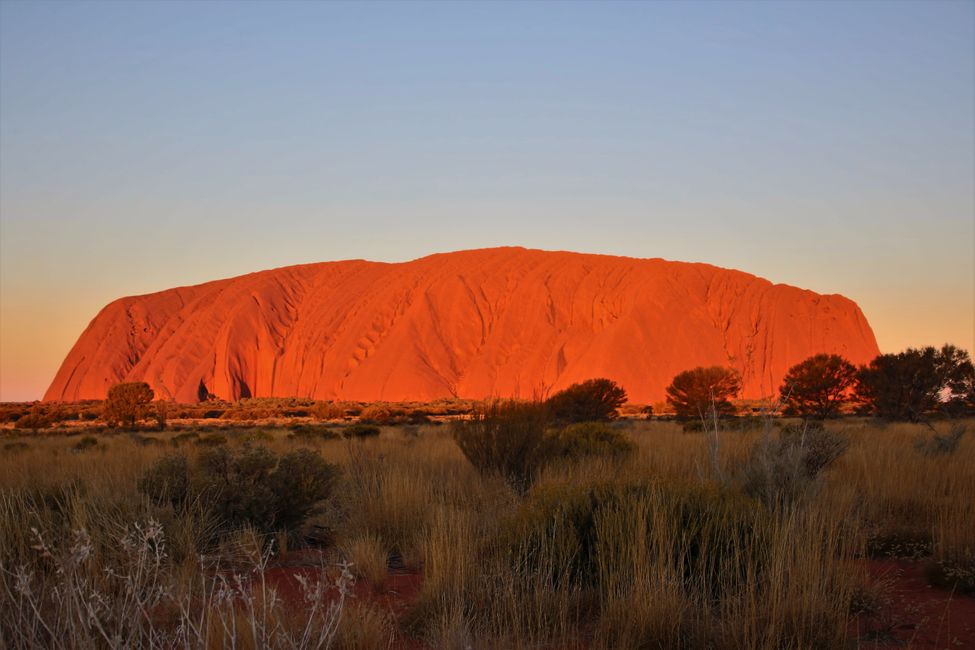
Swiviko swa maendzo Australia
